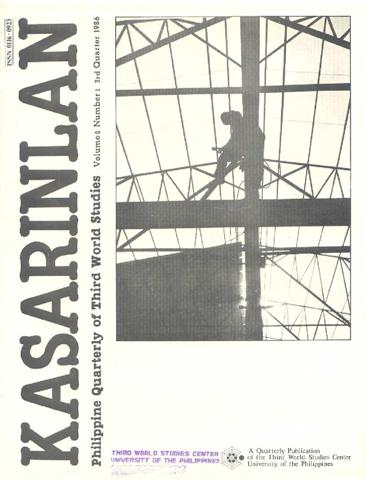The Illusions of Economic Recovery
Abstract
The Philippines has had four balance of payments crises in its post-war history. That stabilization programs implemented in response to the crises of 1949, 1962 and 1970 did not prevent the fourth crisis which started in October 1983 provides fresh evidence that the country’s underlying problem is the lack of development and not insufficient adjustment to the world economy. This paper argues that the economy’s adjustment to each of the three previous crises can be viewed as different efforts to maintain the underlying rent-generating and non-industrialized structure of the country. Moreover, by examining past stabilization programs, the role of the IMF, and the current adjustment program, it identifies two points emphasizing inconsistencies. First, that the Philippines has employed a strategy that endangers long-term growth prospects and sets the stage for subsequent balance of payments crises. Second, the IMF always claims that it is apolitical and only has the best interest of the majority of the country’s population in mind in its program designs; however, before the 1983 crisis, IMF programs demonstrate that it provided enormous support while wasteful investment and increasing concentration were taking place. Thus, the paper argues that it is incumbent on IMF to equally identify a political model alongside its economic model.
Published
2007-11-22
How to Cite
MONTES, Manuel F..
The Illusions of Economic Recovery.
Kasarinlan: Philippine Journal of Third World Studies, [S.l.], v. 2, n. 1, p. 13-18, nov. 2007.
ISSN 2012-080X.
Available at: <https://journals.upd.edu.ph/index.php/kasarinlan/article/view/534>. Date accessed: 16 sep. 2025.
Issue
Section
Features
Keywords
balance of payments; world economy; development; IMF; adjustment program; economic growth
By submitting a manuscript, the authors agree that the exclusive rights to reproduce and distribute the article have been given to the Third World Studies Center.



